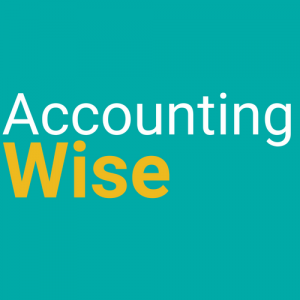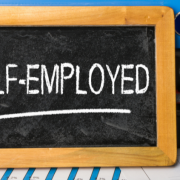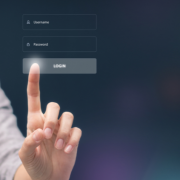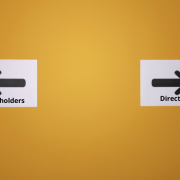Can Clothes Be Claimed for as a Business Expense?
Tax and expenses can be confusing at the best of times, especially when working out what counts as an allowable business expense! When it comes to claiming for clothes as a business expense the short version (or shorts version if we’re doing puns) is down to usage. If you use those clothes for work, and only work, and have to use that particular item for safety or branding, then it’s most likely an allowable expense. But the longer (trousers?) version follows. Clothing that you need for your work might include garments, shoes, hats, and eyewear. There are three broad rules which apply to claiming clothing as an expense in your business. There are some professions which we typically associate with wearing a uniform, such as nursing, fire fighting or the police. Plenty of other organisations also require employees to wear a uniform as part of the brand’s image, though. So, clothing that that has the company logo is also allowable. The branding or logo must be obvious, and can’t be removed or easily hidden.What counts as an allowable clothing expense?
Part of a uniform or has your branding
A costume
Should you ever find yourself dressing up as a pizza to promote your takeaway food business, can breathe a sigh of relief. You’ll be able to claim for your attire as it clearly constitutes a costume. Other examples include an actor’s costume for a stage production, or a suit for a professional clown or magician.
Personal protective clothing and equipment
The nature of your work might make it necessary to wear protective clothing to protect yourself from injury or infection. For instance, helmets, eyewear, or other equipment. These are an allowable expense.
What clothes can’t you claim for as a business expense?
The common theme here is that you can only claim for clothing that you’re able to demonstrate it’s solely for work. HMRC take a hard line against dual usage in expenses and business costs.
There are some grey areas though, such as with fitness instructors or personal trainers. Some may argue that the clothing they need for work can also be worn for their own personal workouts. This would exclude it from being an allowable expense as far as HMRC are concerned.
If it clearly shows the business logo and branding, and is only worn to teach those particular classes, then it’s allowable. The difficulty here might be proving it one way or another.
Other examples of clothes that you can’t claim for include:
- ‘Everyday’ clothes, even if you know you keep them for work and work only. This could apply to professions such taxi drivers, dog walkers, or freelance wedding photographers who set smart clothes aside for when they’re on duty.
- Your favourite pyjamas and comfiest slippers, just because that’s what you like to wear when you’re working from home.
Can I claim uniform tax relief for previous years?
Yes, uniform tax relief can be claimed for up to the previous four years. This is still the case even if you’ve moved jobs in that time and no longer work for that particular employer.
What is the flat rate claimable for uniform expenses?
A flat rate which employees can claim has been arranged with the government. This makes the process of claiming the relief a lot easier, mainly because it doesn’t rely on you keeping records.
If you’re claiming your expenses using the flat rate, it means you can get a standard set amount every year. How much this will be is dependent on your job title and what industry you work in.
Below we’ve listed some of the main industries that qualify for a flat rate and their 2023/24 rates, or you can find the full list of occupations on the Gov.uk website:
- Agriculture: £100
- NHS staff, including ambulance staff, nurses, midwives, and dental nurses: Up to £185
- Airline staff, including flight attendants and pilots: £1,022
- Heating engineers and plumbers: Up to £120
- Public transport workers, including drivers and conductors: Up to £80
- Builders, carpenters, joiners, or cement workers: Up to £140
- Printing, including bench hands, ink and roller makers and machine minders: Up to £140
- Clothing, including knitters, lace makers and dyers: £60
- Forestry workers: £100
Some occupations can understandably claim for additional pieces of clothing over and above their standard uniform. This is allowed by HMRC and is simply due to the nature of the work staff have to carry out. For example, ambulance staff can claim for specialist uniform while nurses and midwives can claim for socks, tights, and shoes.
I’m self-employed. Can I claim anything to help with the cost of washing my uniform?
This is something we get asked quite a bit. As we’ve already covered, if you’re self-employed you can claim the cost of buying uniform as a business expense through your tax return.
If you can also work out how much each wash of your uniform costs (water, electricity cost, detergent etc) then you may be able to include washing it as a business expense too.
However, most people just use the flat rate instead as it’s much easier. If you’re not sure, seek professional advice from an accountant who can help you.
Which industries can claim laundry expenses?
Pretty much any job or industry where you’re required to wear a uniform can attract a claim to help with the cost of washing it. We’re not talking megabucks here, but let’s face it, in these times of soaring utility bills every little helps.
Obviously, some industries are heavier claimers than others when it comes to tax claims for laundry costs. In our experience some of the top ones are health and social care workers, maintenance workers, and people who are employed in construction.
So, how much can I claim for laundry expenses?
If you’re planning to claim back tax with regard to laundry costs, it must be the case that wearing your uniform in the first place is a necessity. If you’re employed you can make your claim yourself using form P87. As with your other expenses, self-employed people will need to include it in their tax return.
For the current tax year (2023/24), the current lowest flat rate you can claim is £60. This means that if you’re a basic-rate taxpayer, 20% of that £60 can be claimed back.
Want some more advice about your small business expenses? That’s what our team of friendly accounting professionals are on hand for. Drop us a line on 0330 113 8442, or request a call back
Find out more about our great-value limited company accountancy packages. or build your own package today











